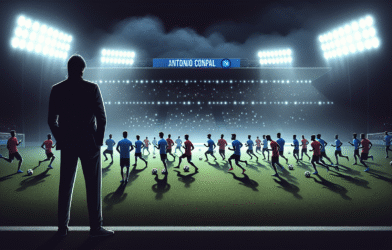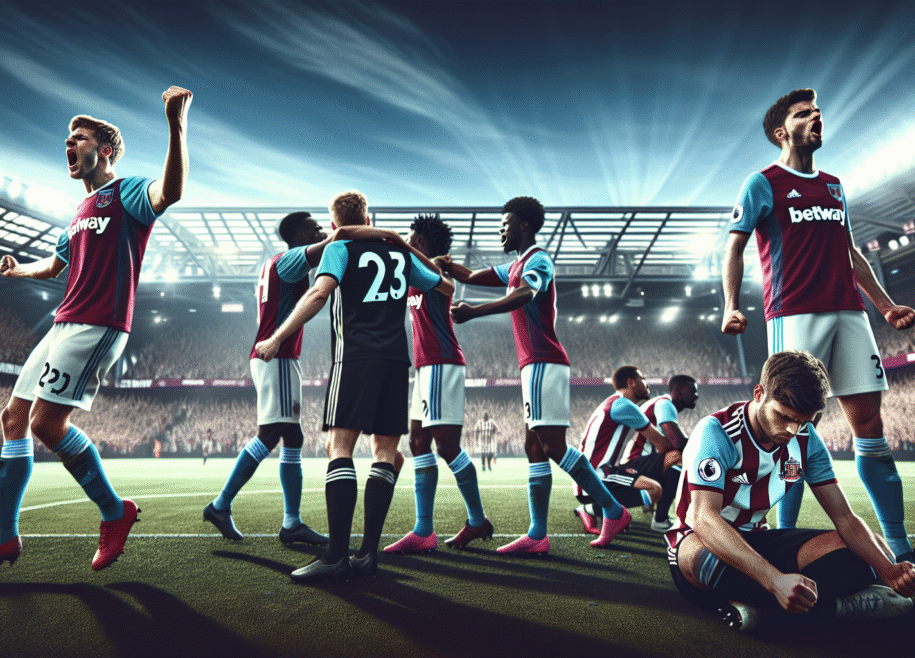Subtotal $0.00
What happened on the touchline
The moment that sparked the sanction
From the moment Chelsea sealed a dramatic late winner over Liverpool, the focus moved to Enzo Maresca and his celebration on the touchline. The Maresca touchline ban was triggered after a second yellow card, delivered for an exuberant celebration that the FA considered excessive. The resulting one‑match touchline ban will keep him off the dugout for the club’s next fixture. The incident has become a central talking point, underscoring Maresca’s fiery presence and the emotional link he has built with a young Chelsea squad at Stamford Bridge. While many supporters praise his energy and determination to maintain momentum, the sanction reminds everyone that passion must still sit within the rules of the game. The Maresca touchline ban also tests how a manager can lead from the stands and continue to steer a squad in flux.
Reaction to the moment was swift and mixed. Some fans saw the ban as a badge of honour for a manager who wears his heart on his sleeve and has helped install a distinct Chelsea identity this season. Others argued the celebration crossed a line and risked setting a controversial tone. For the club, the penalty is a reminder that every gesture on the touchline carries consequences. Chelsea’s owners have publicly backed Maresca’s approach, while the FA has shown that discipline sentences remain part of the modern game. The Maresca touchline ban sits within a broader narrative about building a team that mixes intensity with structure.
FA sanction: details of the ban and fine
Ruling specifics
The FA announced a one‑match touchline ban and an £8,000 fine after Maresca’s second yellow card, which came during the celebrations after Chelsea’s late winner. The sanction applies to the club’s next competitive match, meaning Maresca cannot stand on the dugout touchline but can communicate from the stands. The incident stemmed from an animated reaction that officials judged as excessive, rather than controlled emotion. This is the second disciplinary issue for Maresca in a short spell, contributing to the severity of the punishment. The Maresca touchline ban reinforces the message that passion must be tempered by regulation.
In terms of process, Chelsea will see how their coaching staff adapts to the ban. The club can still prepare and organize from the bench area behind the technical staff, but the on‑field voice from the touchline will be absent for the next game. The FA’s guidance on celebrations remains a live framework for managers at all levels, and the sanction aligns with a broader drive to maintain decorum in high‑demand matches. The Maresca touchline ban therefore becomes part of an ongoing conversation about leadership style and compliance in top‑flight football. For readers seeking official context, see the FA’s guidelines and statements on disciplinary procedures.
Reactions from fans and pundits
Support and critique
Fans responded with a mix of praise and caution. A segment lauded Maresca’s feistiness as a sign Chelsea are pursuing momentum with real urgency. They argued that his energy helps drive a squad that blends academy graduates with new signings. The phrase Maresca touchline ban trended as supporters debated the balance between enthusiasm and discipline. Other supporters, however, felt that managers must model restraint and respect match regulations, even when celebrations are at stake. The debate illustrates how central Maresca’s approach has become to the club’s identity.
Pundits offered a range of views. Some analysts praised Maresca as a motivator who can embed resilience and character in a young squad. They noted that a manager who connects with players and fans can accelerate Chelsea’s development plan. Others warned that repeated breaches risk undermining tactical continuity when decisions hinge on the manager’s voice. The discussion around the Maresca touchline ban mirrors the wider debate about how much personality should be visible in modern football leadership. Chelsea’s ongoing evolution makes this topic unavoidable for supporters and critics alike. For ongoing commentary, see credible outlets such as BBC Sport and the Premier League’s official site.
Impact on Chelsea and Maresca’s squad-building
Short-term and long-term implications
In the immediate term, the Maresca touchline ban means the Chelsea bench will rely more on assistants and senior analysts to relay instructions. The absence of the manager on the touchline can affect tempo and communication, particularly in high‑pressure moments. Yet the squad has grown with academy graduates and experienced players who can respond with cohesion and clarity. Chelsea’s energy levels should remain high, with players taking more directive responsibility from the dugout’s edge. This scenario may test the team’s adaptability, especially in away fixtures where crowd noise is intense. The Maresca touchline ban will be measured by how well the club translates plan A into action from the stands.
Long‑term, Maresca’s leadership is shaping a distinctive Chelsea identity. His hands‑on approach aims to blend youth development with pragmatic, high‑pressure football. The ban foregrounds the necessity of building resilience and character, two traits the squad has been developing throughout the season. The team’s culture sits at the core of Chelsea’s project, which emphasizes speed of play, relentless pressing, and a unified locker‑room ethos. Even with the Maresca touchline ban, the club’s ongoing strategy is to integrate academy players with savvy signings as part of a broader plan to sustain success. For fans seeking deeper insight, the Chelsea official site offers regular updates on squad plans and development paths.
Looking ahead: implications for the season
Momentum and strategy moving forward
Looking ahead, Chelsea must protect momentum despite the Maresca touchline ban. The next fixtures will test squad depth, tactical discipline, and the ability to sustain pressure without the manager’s on‑touchline input. The technical staff will be pivotal in maintaining the game plan and helping players execute the pressing and transition approach that has defined Chelsea’s early season. The Maresca touchline ban, while disruptive, can sharpen focus on preparation, set‑piece routines, and in‑game communication from off the bench. As fans and pundits watch closely, the club’s response will signal how quickly Chelsea can adapt to leadership from the stands while maintaining high performance.
Beyond immediate results, the broader implications revolve around identity and development. Maresca’s project hinges on blending academy graduates with seasoned signings to create a resilient, adaptable side. If Chelsea continue to push for results and develop a strong culture, the Maresca touchline ban becomes a footnote in a narrative about resilience and leadership. As the season unfolds, Chelsea’s style and character will be tested, and the public conversation around Maresca’s approach will persist—reflecting a club willing to take risks to forge a long‑term competitive edge. For further context on Chelsea’s season, see Chelsea official site and BBC Sport coverage.













